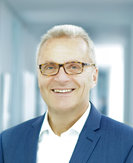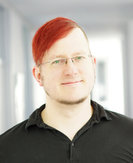Using early power and timing estimations of massively heterogeneous computation platforms to create optimized HPC applications
Patrick Knocke, Ralph Görgen, Jörg Walter, Domenik Helms and Wolfgang Nebel
Proceedings of 2014 International Conference on Embedded and Ubiquitous Computing - EUC 2014
The ever rising energy and accordingly cooling demands are a major hurdle for the scalability of todays supercomputers. We are challenged with the need to increase computation performance to cope with the rising complexity of calculations on the one hand and the need to keep the energy/cooling demand stable or in the best case even to reduce it. Recently, one widely discussed way to do this is the integration of heterogeneous computation devices into the supercomputer systems as these tend to have a far better performance/energy ratio for large classes of applications. The obvious drawback of heterogeneous systems is the additional design complexity for the software development in order to efficiently use these devices in terms of performance as well as power. For this reason we propose a flow, which assists the soft- ware developer at design time, offering immediate power- and performance-estimation. Such approaches are already known in the embedded world, helping there to select between different design possibilities, and will be used to get the best possible per- formance from a massively heterogeneous computation platform, while still keeping the energy consumption in mind.
08 / 2014
inproceedings
IEEE
FiPS
Developing Hardware and Design Methodologies for Heterogeneous Low Power Field Programmable Servers
Developing Hardware and Design Methodologies for Heterogeneous Low Power Field Programmable Servers



